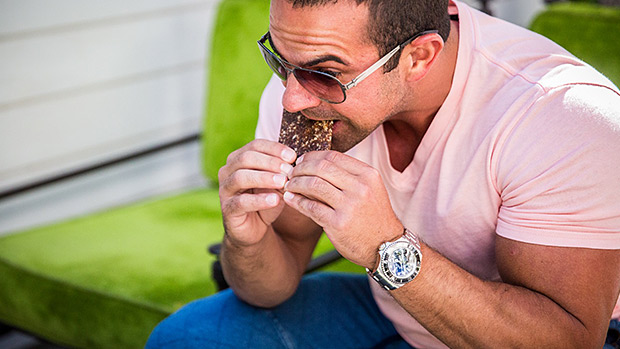A Quick Test
How many of these sound like you? At least once a week...
- I eat a very large amount of food, to the point of feeling discomfort. It's like I can't stop once I start.
- I inhale this food quickly. Sometimes I take another bite before I'm finished chewing the previous mouthful.
- I often feel disgusted, depressed, or guilty after doing this.
- I'm kinda embarrassed by this so I overeat alone so no one will see me.
- I have the urge to eat like this even if I'm not physically hungry.
- I sometimes hoard food or hide it from my family.
- To control this, I diet frequently, sometimes using extreme diets where I cut out an entire macronutrient. Sometimes I just fast. My weight goes up and down because I alternate periods of overeating and rigid dieting.
According to psychologists and eating disorder experts, if several of those make you say, "Yep, that's me!" then you may have BED or Binge Eating Disorder. And you're not alone, BED is now the most common form of disordered eating, surpassing anorexia and bulimia.
Most people with BED are fat, as you'd expect, but not all of them. You can have a binge eating problem and look pretty much okay on the outside (aside from maybe a puffy face).
The stress, the urges, the oddball behaviors, the feeling of being out of control, and the emotional ramifications are the same for "fit" people with BED.
Now, if you're a bodybuilder, CrossFitter, or just a fitness junkie, you may be thinking, "Hey, I do a lot of those things, but I don't have an eating disorder!"
You may be right, but you have to agree that many of our nutritional practices edge into the gray area. The coveted cheat meal, for example. Very low-carb diets, intermittent fasting, the meat-only diet fad, veganism, planned diet stages where we "bulk" on purpose then strictly diet, etc. You get the idea.
(And yes, a competitive bodybuilder alternates periods of overeating and under-eating – off season and during season – but no one has ever mistaken a bodybuilder's yo-yo diet as "healthy." And besides, most of us don't actually compete.)
All of these dietary practices can be slippery slopes. A gut-splitting cheat meal once a week, after days of restricted eating, followed by guilt and new food restrictions for a few days after? Punishing yourself or "making up for it" the next day by training extra hard or long? (That's called a compensatory behavior.) That's pretty much textbook BED behavior.
The experts say these behaviors go from gray area to BED when they start to interfere with your normal life. You eat alone or in secret, you avoid eating out with friends and family, you feel terrible about yourself most days, etc.
After reading this, how do you feel? Is it...
- A. I think this is interesting and something to be aware of.
- B. Screw you, Shugart! You and those so-called experts can kiss my ASS!
Or...
Is it "B?" Generally, if you get that riled up about something, it's because it struck an off-key chord with you. Your over-the-top defensiveness could also be a sign that you have a potential problem.

If you think you have BED – or might be straddling the line – a new study may help you out.
Researchers have known for a while that stress is a key determinant of binge eating. Likewise, Rhodiola rosea is known to modulate stress responses. So the researchers decided to freak out some rats and give them the popular adaptogen. (Adaptogens help the body adapt to – and resist – stress.)
First, the scientists gave the rats an eating disorder by overfeeding them highly palatable food for 4 days then putting them on strict diets for 4 days. They cycled through both feeding patterns for 8 weeks until the rats showed signs of BED.
Then they exposed the rats to stress, which triggered binge eating. Here's what happened:
- The rats who didn't have any Rhodiola ate their faces off.
- The rats who had ingested a small dose of Rhodiola had less severe episodes of binge eating.
- The binge eating episode was completely abolished in the rats who were given a bigger dose of Rhodiola.
The Rhodiola also abolished the stress-induced increase in serum corticosterone levels. It appeared to be the salidroside component of Rhodiola rosea that contributed to this reduction and abolishment, respectively.
Athletes have been using Rhodiola during times of increased physical demands to manage fatigue and enhance their ability to recover from intense training. Now it looks like the herb has potential too for those with binge eating issues.
If you think BED could be a problem for you, and you notice that it's triggered by stress, do a cycle of Rhodiola. Choose one method:
- 3 weeks on, 1 week off
- 6 weeks on, 2 weeks off
- 12 weeks on, 4 weeks off
Of course, if you think you have full-blown BED, then seek professional help as well.
- Cifani C et al. Effect of salidroside, active principle of Rhodiola rosea extract, on binge eating. Physiol Behav. 2010 Dec 2;101(5):555-62. PubMed.
- NEDA, National Eating Disorders Association, Binge Eating Disorder




